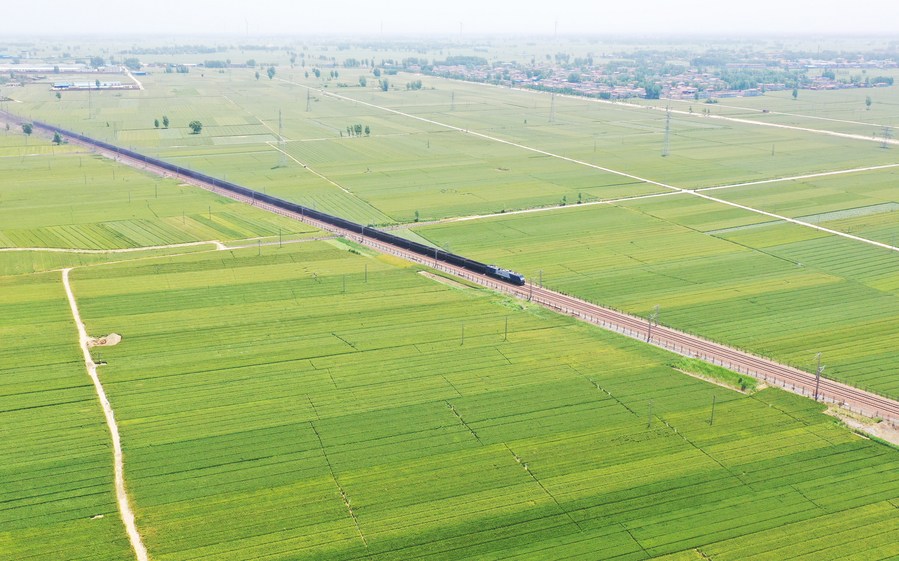
Aerial photo taken on May 17, 2022 shows wheat fields in Xiaowei Village, Shipogu Township, Yanjin County of Xinxiang City, central China's Henan Province. (Xinhua/Zhang Haoran)
BEIJING, May 19 (Xinhua) -- Chinese scientists have found a new gene that can boost the yield of wheat by improving the crop's drought tolerance and nitrogen-use efficacy, according to the Chinese Academy of Agricultural Sciences (CAAS).
Drought and nitrogen deficiency are the major limiting factors affecting the global wheat yield, according to Ma Youzhi from the CAAS.
Genetically enhancing drought tolerance and nutrient use efficacy enables sustainable and stable wheat production in areas exposed to water shortages and low soil fertility due to global warming and declining natural resources, Ma said.
Researchers from the CAAS cloned GmTDN1, a gene encoding a DREB-like transcription factor, from a stress-resistant soybean variety and introduced it into two modern winter wheat varieties. The wheat varieties showed significant improvements in drought and low-nitrogen tolerance.
The findings have the potential to contribute to global food security by improving the drought tolerance and nitrogen-use efficacy of cereal crops, per the study recently published in the journal Plant Biotechnology Journal. ■












